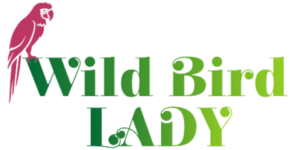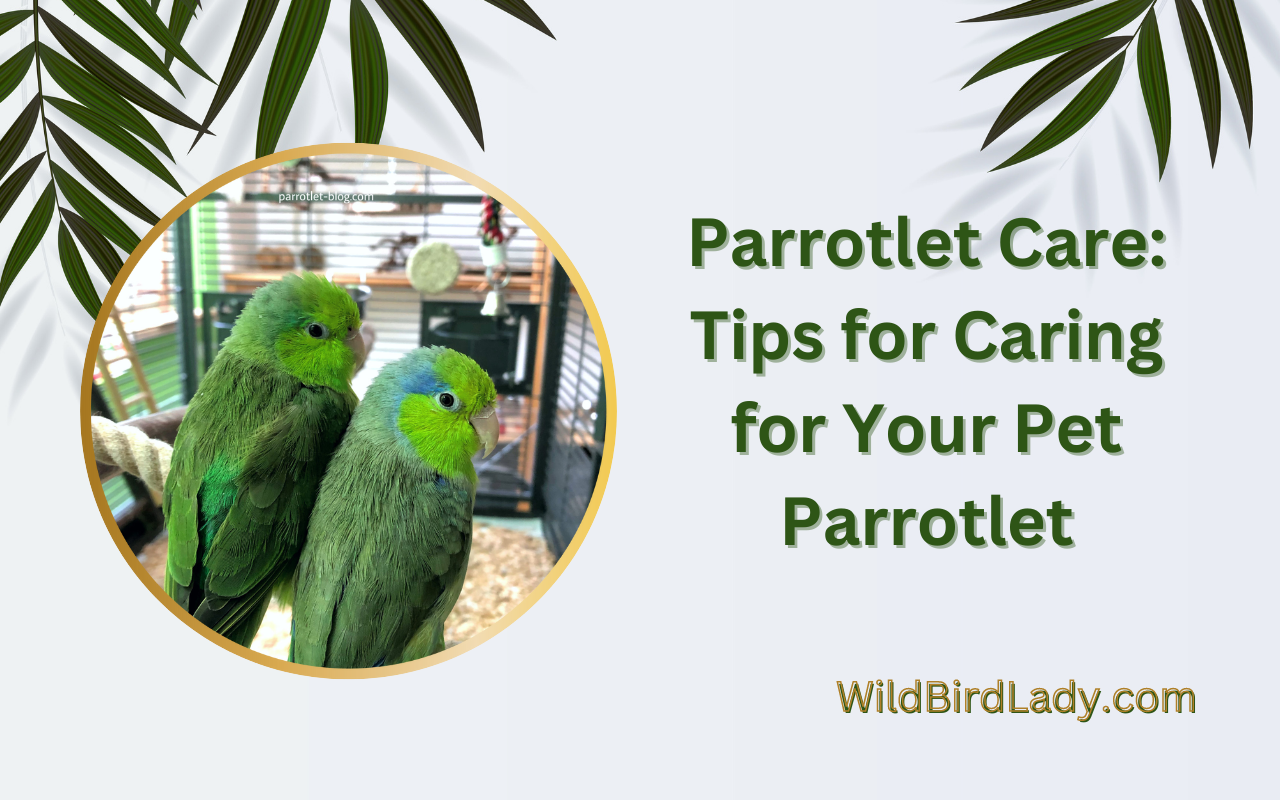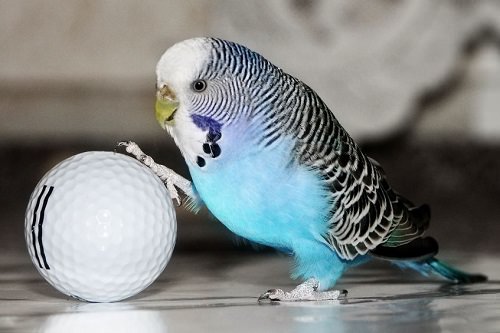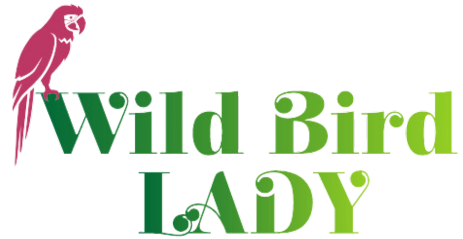Proper care for pet parrotlets includes a well-balanced diet, plenty of social interaction, and a clean living environment. Parrotlets are among the smallest of all parrot species, and are known for their spunky and playful personalities.
They make excellent pets for those who have the time and patience to dedicate to their care. With the right diet, housing, and socialization, parrotlets can live full and happy lives in captivity. In this article, we’ll provide you with helpful tips and advice for caring for your pet parrotlet, so that you can ensure they have everything they need to thrive.
From feeding and housing to socialization and enrichment activities, we’ll cover all the essentials you need to know to provide a high-quality life for your feathered friend.
Credit: pets.amerikanki.com
Environment And Habitat
Parrotlets need a comfortable and secure environment to thrive and exhibit natural behaviors. Here are some tips for creating an ideal habitat for your pet parrotlet:
Indoor Vs Outdoor Living For Parrotlets
Parrotlets are usually kept indoors due to their small size and temperament. Although they can survive in outdoor aviaries, indoor cages ensure their safety from predators and harsh weather conditions. Parrotlets are social animals and need to be kept in a safe, clean, and comfortable space where they can interact with their owners.
Room Size And Environment
Parrotlets require enough space to move around, stretch their wings, and play. The room should be well-ventilated and have plenty of natural light. Avoid placing their cage next to windows, drafts, or air conditioners. To maintain a healthy environment, clean their cage and surroundings regularly with a bird-friendly cleaner and avoid using chemicals or fumes that can harm them.
Heating And Cooling
Parrotlets cannot tolerate extreme temperatures, and changes in temperature can cause stress and illness. Keep their cage away from areas that are too hot or too cold. Use a thermometer to monitor the temperature and ensure that it remains between 68-75 degrees fahrenheit.
During hot weather, provide a cool mist or a shallow dish of water for your parrotlet to bathe and stay comfortable.
Cage Or Aviary Size And Structure
Parrotlets require space to move and explore freely. The cage or aviary should be spacious enough so that they can stretch their wings, climb, and play without feeling confined. The recommended minimum cage size for a parrotlet is 18 x18x18 inches, but the bigger the cage, the better.
Provide perches of different sizes, shapes, and materials to promote healthy feet and exercise.
Perches And Toys
Parrotlets are intelligent birds and require mental and physical stimulation to prevent boredom and destructive behavior. Provide a variety of toys that are safe for them to play with, such as swings, ropes, bells, and puzzles. Rotate their toys regularly to keep them engaged and interested.
Place perches of different sizes and textures in their cages, avoiding sandpaper or rough textures that can damage their feet.
Remember, providing a suitable environment, habitat, and accessories can make a significant difference in your parrotlet’s overall health and happiness. Your pet will thank you for it with their cheerful chirps, cuddles, and displays of affection!
Nutrition
Parrotlet Care: Tips For Caring For Your Pet Parrotlet
Parrotlets are small, inquisitive and active birds that make great pets. They require proper nutrition to live long and healthy lives. To provide optimal care for your pet parrotlet, it is important to know what their dietary requirements are, what foods and feeding habits are suitable, as well as their water needs, and any healthy treats and snacks you can offer them.
Parrotlet’S Dietary Requirements
Parrotlets require a balanced diet that contains the necessary nutrients, vitamins and minerals to maintain good health. Their dietary needs include:
- High-quality pellets: This should be the primary staple food in your parrotlet’s diet, as it contains all the essential nutrients they require.
- Fresh fruits and vegetables: These should be a regular part of your parrotlet’s diet, as they provide important vitamins, fiber, and hydration. Be sure to feed your bird a variety of fruits and veggies, such as apples, grapes, carrots, and leafy greens.
- Seeds and nuts: Parrotlets love to snack on seeds and nuts, but these should be given in moderation as they are high in fat.
- Protein: Insects such as mealworms or crickets and cooked eggs or meats can be offered to parrotlets occasionally.
Appropriate Food And Feeding Habits
Providing a balanced diet is important, but knowing how and when to feed your parrotlet also matters. Here are some tips for appropriate food and feeding habits:
- Feed your parrotlet twice a day, ideally in the morning and evening. This allows them to have consistent access to food without overeating or undereating.
- Monitor your bird’s food intake closely, as they tend to pick out their favorite foods, neglecting others. To avoid this, provide a varied selection of foods that they enjoy and swap them out.
- Leave fresh food out for about 2 hours before replacing it with a fresh batch to ensure that it does not spoil, which can make your parrotlet sick.
- Even though parrotlets love to eat seeds, don’t let them be the only food source. A seed-only diet will lack the essential nutrients that parrotlets require to maintain good health.
Water Requirements
Clean water for drinking and bathing is essential for your parrotlet’s overall health and hygiene. Here are some water requirements:
- Provide fresh clean water in a bowl that is appropriate for your parrotlet’s size.
- Change the water daily and clean the bowl regularly.
- Consider misting your parrotlet with clean water as part of their bath time.
Healthy Treats And Snacks
Treats are a great way to strengthen the bonding experience with your parrotlet, but remember moderation is key. Here are some healthy snack options:
- Fresh fruits and vegetables that your parrotlet likes.
- Plain popcorn and unsalted nuts
- Cooked grains like quinoa, rice and pasta.
Providing a balanced diet, appropriate feeding habits, clean water, and healthy snacks for your parrotlet is essential to maintain good health and longevity for your feathered friend. Be sure to give them plenty of love, attention, and care to help them thrive!
Health And Hygiene
Grooming And Hygiene For Parrotlets
Proper grooming and hygiene practices are vital to ensure your pet parrotlet’s health and well-being. Here are some key points to keep in mind:
- Trim their nails: Parrotlets’ nails can grow very quickly, so it’s essential to keep them trimmed to prevent them from getting caught on things and injuring themselves. You can use specially designed nail clippers to trim their nails carefully.
- Clean their beaks: Parrotlets’ beaks are continually growing, so they need to use them frequently. Occasionally, their beaks may accumulate food and debris, making them prone to infection. You can clean their beaks using a soft cloth or cotton bud dipped in warm water. Avoid using chemicals and abrasive scrubbers.
- Annual feather inspection: Parrotlets’ feathers tend to get worn out over time and lose their quality, which may cause them to become susceptible to infections. An annual feather inspection by an avian veterinarian can ensure that your bird’s feathers are in good condition and prevent skin problems.
Health Issues And Common Diseases
Even with proper care, your parrotlet may still face some health problems.
- Be aware of signs of disease: It’s vital to be familiar with your pet’s regular behavior so that you can notice any changes that may indicate ill health. You should observe their eating habits, activity levels, and droppings to ensure they are healthy.
- Common diseases: Parrotlets are susceptible to various health issues like parasites, respiratory problems, digestive issues, and bacterial infections. Providing a healthy diet, clean living environment, and regular check-up by an avian veterinarian can help prevent these diseases.
Avian Vet Visits, Check-Ups, And Vaccination Requirements
Regular visits to an avian veterinarian are essential to keep your bird in good health.
- Check-ups: Regular check-ups can help your vet to detect health problems earlier before they develop into more severe issues. A complete check-up consists of a physical examination, blood test, and other diagnostic tests.
- Vaccinations: There are vaccines available to protect your parrotlet from certain infections.
However, not all diseases have vaccines, and vaccination schedules may vary based on breed, age, health, and other factors. Consult your veterinarian to determine if your pet parrotlet needs any vaccinations.
How To Recognize Signs Of Disease Or Stress
Parrotlets can suffer from stress or illness, and it’s crucial to recognize the signs early and get them prompt medical attention. Here are some signs of disease or stress that you should look out for:
- Loss of appetite
- Constant scratching and preening
- Sneezing and discharge from the nose
- Sleeping more than usual
- Decreased vocalization
- Change in the quality of droppings
Housekeeping And Cleaning Practices
Maintaining a clean living environment is crucial for your parrotlet’s health and well-being.
- Regular cleaning: Thorough cleaning of the cage, food, and water bowls is necessary to keep your parrotlet’s living conditions clean and hygienic. Daily cleaning of the cage is recommended, along with weekly disinfection with bird-safe cleaners.
- Avoid toxic items: Make sure that all toys, perches, and other accessories in the cage are bird-safe and won’t cause injury or illness. Avoid using chemicals, perfumes, or aerosols that can be toxic to birds in the same room.
With proper grooming, care, and medical attention, your pet parrotlet can live a long, healthy, and happy life.
Behavior And Training
Parrotlets can make excellent companion pets. These adorable birds are known for their playful personalities, charming antics, and intelligence. If you’re thinking about getting a pet parrotlet, it’s important to know how to care for them. In this blog post, we’re going to focus on behavior and training, to help ensure that your parrotlet is happy and healthy.
Understanding Parrotlet Behavior
Parrotlets are known for their outgoing personalities and can develop deep bonds with their owners. However, they can also exhibit some unwanted behaviors if not trained properly. Here are some key factors to keep in mind when understanding their behavior:
- Parrotlets are highly social birds and need companionship
- They have a strong desire to chew and explore their surroundings
- These birds are intelligent and need mental stimulation
- They can be territorial and aggressive if not trained properly
Basic Behavior Training For Your Parrotlet
Teaching your bird basic behaviors is essential in ensuring your parrotlet is enjoyable to be around. Here are some basic training tips:
- Start with simple commands such as “step up” or “step down”
- Use positive reinforcement when training your bird
- Train your bird for short periods regularly
- Be patient and consistent with training
Positive Reinforcement Training Techniques
Positive reinforcement is an extremely effective way of training your parrotlet. It involves rewarding good behavior and ignoring bad behavior. Here are some techniques to follow:
- Offer treats when your bird behaves correctly
- Use praise and affection to encourage good behavior
- Ignore your bird when they are exhibiting unwanted behaviors
- Avoid punishing your bird, as this can be counterproductive
Socialization With Other Animals
Parrotlets are social birds and can benefit from socializing with other animals. Here are some tips for socializing your parrotlet:
- Introduce your bird gradually to other animals
- Supervise interactions and keep your parrotlet’s safety in mind
- Provide plenty of opportunities for your parrotlet to interact with other birds
Dealing With Behavioral Issues
If your parrotlet is exhibiting behavioral issues, it’s important to address them promptly. Here are some tips for dealing with behavioral issues:
- Identify the underlying cause of the behavior
- Use positive reinforcement to discourage bad behavior
- Provide mental stimulation for your bird to keep them entertained
- Consult an avian veterinarian for professional guidance if needed
By understanding parrotlet behavior and training your bird properly, you can ensure a happy and healthy life for your feathered friend. Remember to be patient, consistent, and use positive reinforcement when training your bird.
References
Parrotlet Care: Tips For Caring For Your Pet Parrotlet
With their vibrant colors and comical personalities, parrotlets make excellent pets for bird lovers. However, taking care of these little creatures can be a bit challenging. In this section, we’ll provide you with a list of reference sources and links for additional reading.
List Of Reference Sources Used In The Article
- “pet parrotlets: Facts & information” from petmd.com
- “parrotlet care 101 – a beginner’s guide” from the spruce pets
- “parrotlet care” from birdchannel.chttps://wildbirdlady.com/parrotlet-care-101-what-you-need-to-know/https://wildbirdlady.com/parrotlet-care-101-what-you-need-to-know/om
Here are some of our trusted sources for information about parrotlets:
Links Or Online Resources For Further Reading
To learn more about parrotlet care, behavior, and training, we recommend the following online resources:
- “parrotlet care: The ultimate guide” from avianweb.com
- “training your parrotlet” from the parrotlet owner’s club
- “toys for parrotlets: The ultimate guide” from birdsupplies.com
Remember, taking care of a parrotlet involves more than providing food and water. These intelligent birds require social interaction, mental stimulation, and proper living conditions to thrive. By using these resources, you can ensure your pet parrotlet leads a happy and healthy life.
Frequently Asked Questions On Parrotlet Care: Tips For Caring For Your Pet Parrotlet
What Should I Feed My Pet Parrotlet?
Parrotlets should be given a variety of fresh fruits, vegetables, and pellets. Avoid giving them seed-only diets. Fresh water should always be available, and their food bowls should be cleaned regularly to prevent the growth of bacteria.
How Can I Keep My Parrotlet Entertained?
Parrotlets are intelligent and active birds and need plenty of toys to keep them entertained. The toys should be rotated regularly to prevent boredom. They also love interacting with their owners, so make sure to spend time socializing with them daily.
Do Parrotlets Require Any Special Care?
Parrotlets require daily exercise, a balanced diet, and mental stimulation to stay healthy and happy. They also need their cage to be cleaned frequently, at least once in a day, to maintain hygiene. Additionally, they need regular visits to the vet to ensure they are in good health.
How Do I Litter-Train My Parrotlet?
Place a small litter box inside their cage and encourage them to use it by placing some of their droppings in the box. Praise them when they use it correctly. Clean the litter box frequently to ensure that it remains clean and hygienic.
How Do I Know If My Parrotlet Is Sick?
Keep an eye out for any of the common signs of illness such as lack of appetite, lethargy, feathers that are ruffled or fluffed up, excessive sneezing, or discharge from the eyes or nose. If you notice any of these, consult a veterinarian immediately.
Should I Clip My Parrotlet’S Wings?
It is a personal preference, but clipping their wings can help prevent injury or escape. If you choose to clip their wings, it is best to have it done by a professional. Make sure to provide them with a safe and comfortable environment even if their ability to fly is limited.
Conclusion
After reading this article, we can conclude that caring for parrotlets requires attention, patience, and knowledge. By providing a suitable environment, offering a balanced diet, ensuring proper hygiene, and spending quality time, you can keep your feathered friend healthy and happy.
Always observe their behavior and seek medical advice if needed. Remember to avoid stressful situations and provide opportunities for physical and mental stimulation. Parrotlets are social creatures with unique personalities, and by understanding their needs, you can develop a strong bond with your pet.
We hope that these tips will help you become a responsible and loving parrotlet owner. Don’t hesitate to share your own experiences and advice with other bird enthusiasts and create a supportive community.
Read Also: Adopting a Cockatoo: Smoothing the Transition with These Tips.
Published on May 21, 2023 | Last Updated on June 28, 2025 by Rifat Ahmed
Latest Posts
By Rifat Ahmed – Birdwatching Expert (13+ Years of Experience) If you've ever startled a quail in the wild, you've probably witnessed it explode into flight with a surprising burst of...
How Long Do Quails Live? Tips to Help Them Live Longer and Healthier Lives
By Rifat Ahmed – Birdwatching Expert with 13 Years of Experience As someone who has spent over a decade watching quails flutter through grasslands and woodland edges, I've often been asked: how...



